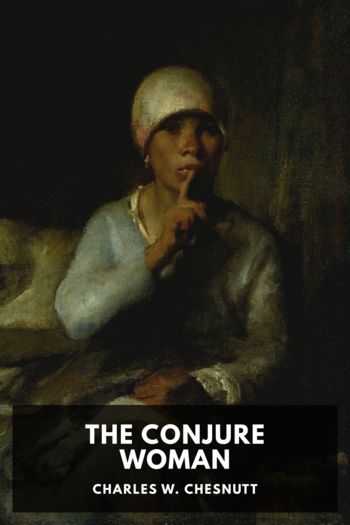The Lives of the Caesars, Suetonius [best book club books for discussion .TXT] 📗

- Author: Suetonius
Book online «The Lives of the Caesars, Suetonius [best book club books for discussion .TXT] 📗». Author Suetonius
Vespasian was born in the Sabine country, in a small village beyond Reate, called Falacrina, on the evening of the fifteenth day before the Kalends of December, in the consulate of Quintus Sulpicius Camerinus and Gaius Poppaeus Sabinus, five years before the death of Augustus. He was brought up under the care of his paternal grandmother Tertulla on her estates at Cosa. Therefore even after he became emperor he used constantly to visit the home of his infancy, where the manor house was kept in its original condition, since he did not wish to miss anything which he was wont to see there; and he was so devoted to his grandmother’s memory that on religious and festival days he always drank from a little silver cup that had belonged to her.
After assuming the garb of manhood he for a long time made no attempt to win the broad stripe of senator, though his brother had gained it, and only his mother could finally induce him to sue for it. She at length drove him to it, but rather by sarcasm than by entreaties or parental authority, since she constantly taunted him with being his brother’s footman.831
He served in Thrace as tribune of the soldiers; as quaestor was assigned by lot to the province of Crete and Cyrene; became a candidate for the aedileship and then for the praetorship, attaining the former only after one defeat and then barely landing in the sixth place, but the latter on his canvass and among the foremost. In his praetorship, to lose no opportunity of winning the favour of Gaius, who was at odds with the senate,832 he asked for special games because of the emperor’s victory in Germany and recommended as an additional punishment of the conspirators833 that they be cast out unburied. He also thanked the emperor before that illustrious body834 because he had deigned to honour him with an invitation to dinner.
Meanwhile he took to wife Flavia Domitilla, formerly the mistress of Statilius Capella, a Roman knight of Sabrata in Africa, a woman originally only of Latin rank,835 but afterwards declared a freeborn citizen of Rome in a suit before arbiters, brought by her father Flavius Liberalis, a native of Ferentum and merely a quaestor’s clerk. By her he had three children, Titus, Domitian, and Domitilla. He outlived his wife and daughter; in fact lost them both before he became emperor. After the death of his wife he resumed his relations with Caenis, freedwoman and amanuensis of Antonia, and formerly his mistress; and even after he became emperor he treated her almost as a lawful wife.
In the reign of Claudius he was sent in command of a legion to Germany, through the influence of Narcissus; from there he was transferred to Britain,836 where he fought thirty battles with the enemy. He reduced to subjection two powerful nations, more than twenty towns, and the island of Vectis,837 near Britain, partly under the leadership of Aulus Plautius, the consular governor, and partly under that of Claudius himself. For this he received the triumphal regalia, and shortly after two priesthoods, besides the consulship, which he held for the last two months of the year. The rest of the time up to his proconsulate he spent in rest and retirement, through fear of Agrippina, who still had a strong influence over her son and hated any friend of Narcissus, even after the latter’s death.
The chance of the lot then gave him Africa, which he governed with great justice and high honour, save that in a riot at Hadrumetum he was pelted with turnips. Certain it is that he came back none the richer, for his credit was so nearly gone that he mortgaged all his estates to his brother, and had to resort to trading in mules838 to keep up his position; whence he was commonly known as “the Muleteer.” He is also said to have been found guilty of squeezing two hundred thousand sesterces out of a young man for whom he obtained the broad stripe against his father’s wish, and to have been severely rebuked in consequence.
On the tour through Greece, among the companions of Nero,839 he bitterly offended the emperor by either going out often while Nero was singing, or falling asleep, if he remained. Being in consequence banished, not only from intimacy with the emperor but even with his public receptions, he withdrew to





Comments (0)